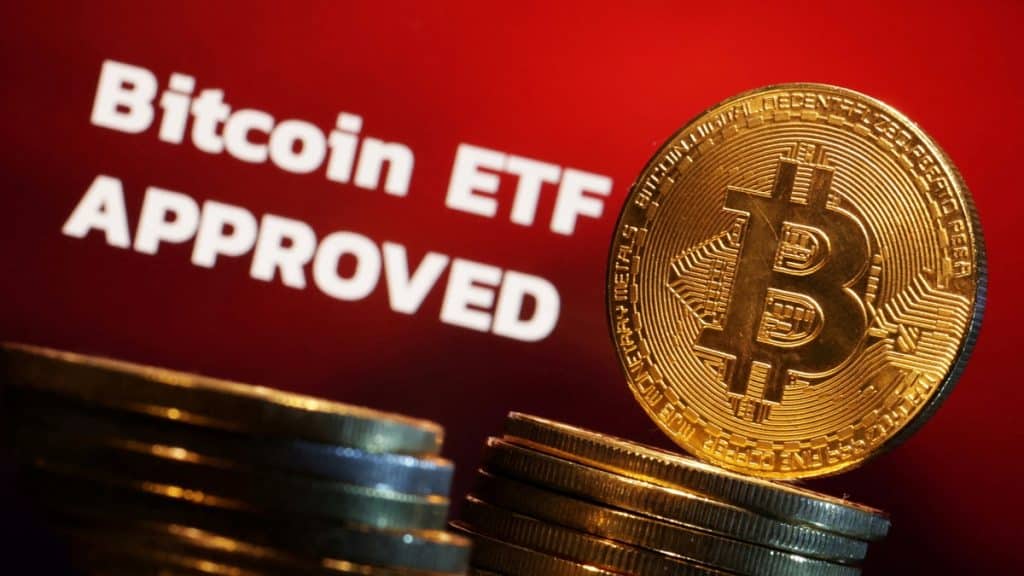Are you ready for a game-changing development in the world of cryptocurrencies? Brace yourself, because the long-anticipated approval of Bitcoin ETFs in the United States is finally here! This exciting news has sent shockwaves throughout the crypto community, sparking debates about its potential impact.
In this blog post, we will explore what exactly a BTC ETF is, compare it to traditional BTC investments, and find out how its approval can change the entire crypto industry.
What is BTC ETF?
Bitcoin ETF, or Exchange-Traded Fund, is a financial product that allows investors to gain exposure to Bitcoin without actually owning the cryptocurrency itself. Think of it as a basket holding Bitcoin assets that can be bought or sold on traditional stock exchanges. This means that instead of going through the hassle of creating and managing digital wallets, investors can simply trade BTC ETF shares just like any other stock.
One key advantage of BTC ETFs is their potential to attract institutional and retail investors who may have been hesitant to enter the world of cryptocurrencies due to its perceived complexity and volatility. By providing a regulated investment vehicle tied to Bitcoin’s performance, ETFs offer a sense of security and familiarity for those seeking exposure to this digital asset.
Compared to traditional investments in Bitcoin, such as buying coins directly from an exchange or using custodial services, BTC ETFs provide several benefits. They offer greater liquidity since they can be easily traded on established stock exchanges during regular trading hours. They provide diversification by holding multiple Bitcoins within one fund, reducing the risk associated with investing in a single asset.
However, it’s important to note that there are different types of BTC ETFs that SEC has approved. Some propose physically backing the fund with actual Bitcoins held in custody while others suggest using futures contracts tied to the price movements of Bitcoin.
ETF vs. Traditional BTC
When it comes to investing in Bitcoin, there are two main options: traditional BTC investments and ETFs . Both have their pros and cons, so let’s take a closer look at how they compare.
Traditional BTC investments involve buying actual Bitcoins. You become the owner of these digital assets, which can be stored in a secure wallet. This method gives you complete control over your investment but also requires technical knowledge and security precautions.
On the other hand, ETFs allow investors to gain exposure to Bitcoin without directly owning it. An ETF is a financial product that tracks the price of an underlying asset – in this case, Bitcoin. It works similarly to stocks traded on exchanges.
One advantage of ETFs is their accessibility. They can be bought and sold through brokerage accounts just like any other stock or exchange-traded product. This makes it easier for retail investors who may not want to deal with the complexities of owning and storing cryptocurrencies themselves.
However, some argue that traditional BTC investments offer more potential for profit as they allow direct ownership of Bitcoins during bull runs when prices skyrocket.
While both traditional BTC investments and ETFs have their merits, each caters to different types of investors. Whether you prefer full control over your investment or easy accessibility through brokerage accounts will depend on your risk appetite and personal preferences.
The Impact of ETF Approval on Crypto Community
The approval of a Bitcoin Exchange-Traded Fund in the United States has been a long-awaited event for the crypto industry. With this milestone finally achieved, it is crucial to understand the potential impact it can have on the crypto community.
First and foremost, the approval of a BTC ETF would bring significant legitimacy to cryptocurrencies as an asset class. Institutional investors who were previously hesitant about entering the volatile world of digital currencies may now feel more comfortable investing in them through regulated channels. This influx of institutional capital could lead to increased liquidity, stability, and overall market growth.
Moreover, retail investors would benefit from easier access to Bitcoin through an ETF. Investing in cryptocurrencies would become more convenient and familiar for everyday individuals who are looking to diversify their investment portfolios. This increased accessibility could drive greater adoption and acceptance of cryptocurrencies in mainstream society.
Additionally, the approval of a BTC ETF could also help address some regulatory concerns surrounding digital assets. By subjecting cryptocurrencies to traditional financial regulations enforced by governing bodies such as the Securities and Exchange Commission, fraudulent activities and illicit practices within the industry might be curbed effectively.
However, while numerous advantages are associated with an approved BTC ETF, there are also potential drawbacks that need consideration. One concern is that such funds might divert investment away from individual cryptocurrencies towards these structured products instead. This shift could potentially diminish price discovery mechanisms within specific cryptocurrency markets.
Furthermore, heightened interest from institutional investors may result in increased market manipulation attempts or concentration of wealth among certain players within the crypto space. These factors could disrupt decentralization efforts fundamental to many cryptocurrency projects’ aspirations.
